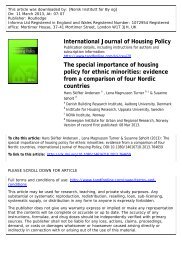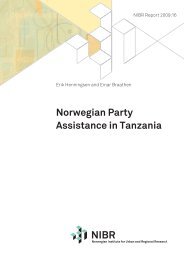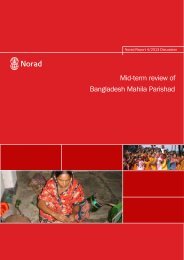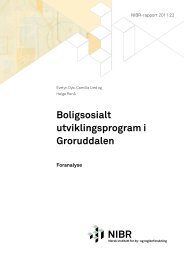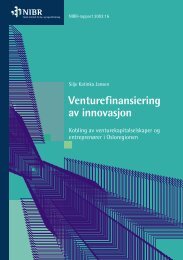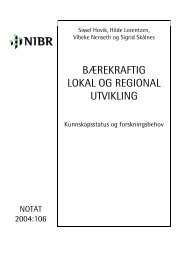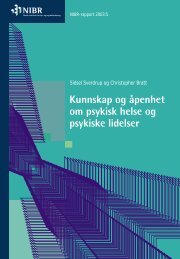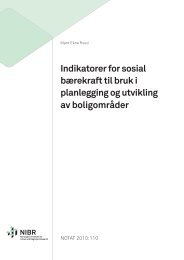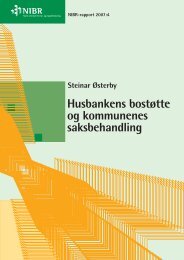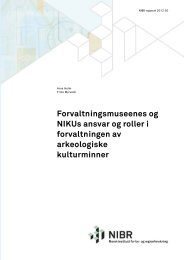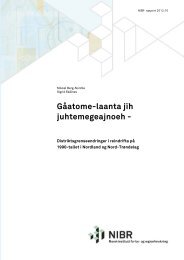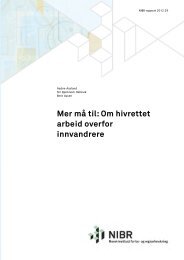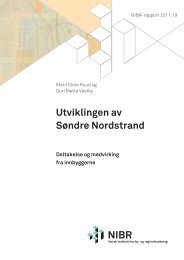Evaluation of the Southern and Eastern Africa Regional Centre for ...
Evaluation of the Southern and Eastern Africa Regional Centre for ...
Evaluation of the Southern and Eastern Africa Regional Centre for ...
- No tags were found...
You also want an ePaper? Increase the reach of your titles
YUMPU automatically turns print PDFs into web optimized ePapers that Google loves.
42to RNE <strong>for</strong> 2012 <strong>the</strong> centre ‘now only effects deposits into UoZ accounts <strong>for</strong>payment <strong>of</strong> fees, local staff salary top ups or Basil Fletcher Court [residential] rentals’.In view <strong>of</strong> <strong>the</strong> different arrangement <strong>and</strong> onus now on <strong>the</strong> <strong>Centre</strong> itself, but with apart-time bookkeeper, a thorough system audit would now be highly appropriate.4.1.1 SalariesWhile <strong>the</strong> UZ funds basic salaries <strong>of</strong> <strong>the</strong> teaching staff, each receive a top-up on <strong>the</strong>irsalary from RNE funding. The top-up started in 2003 as <strong>the</strong> salaries were deemed solow, <strong>and</strong> at <strong>the</strong> time UoZ experienced a large brain drain out <strong>of</strong> <strong>the</strong> sector <strong>and</strong>country. In 2008, <strong>the</strong> situation was particularly critical as all UoZ staff received only$100 in salary per month. The teaching staff at <strong>the</strong> <strong>Centre</strong> said that <strong>the</strong>y would nothave stayed at <strong>the</strong> centre without this top-up. Though <strong>the</strong> top-up appears modestwhen looked at in comparison to South <strong>Africa</strong>n salaries, from interviews itnone<strong>the</strong>less appears critical in retaining teaching staff at <strong>the</strong> <strong>Centre</strong> who o<strong>the</strong>rwisewould most likely <strong>of</strong> joined <strong>the</strong> brain drain.4.1.2 TechnicalThe <strong>Centre</strong> has developed very good premises through purchasing a house close to<strong>the</strong> Faculty <strong>of</strong> Law at UoZ but strategically located over <strong>the</strong> road. The locationappears highly conducive to providing a restful work environment, as well as acentral meeting point <strong>for</strong> students. Given that many are from o<strong>the</strong>r countries in <strong>the</strong>region, this provides an important locus. They have exp<strong>and</strong>ed <strong>the</strong> premises in recentyears- notably, <strong>the</strong> library, <strong>and</strong> freeing up space <strong>for</strong> additional teaching rooms. The<strong>Centre</strong> has acquired a generator <strong>and</strong> borehole <strong>for</strong> reliable electricity <strong>and</strong> water supply,a necessity in <strong>the</strong> current situation in Zimbabwe. Students can connect to Wi-Fi bothat <strong>the</strong> <strong>Centre</strong>’s premises <strong>and</strong> in <strong>the</strong> halls <strong>of</strong> residence. SEARCWL convinced UoZ torent an old stock <strong>of</strong> flats to <strong>the</strong>m, not only below <strong>the</strong> market price, at $150 permonth, but also at <strong>the</strong> far end <strong>of</strong> campus that tends to avoid <strong>the</strong> worst <strong>of</strong> on-campusdisruption when that occurs. SEARCWL maintains <strong>the</strong> flats.The building is well maintained, with good grounds, good equipment <strong>for</strong> teaching,including interactive whiteboards in three teaching rooms. Staffs have contributedsome items, such as furniture, <strong>the</strong>mselves. One <strong>of</strong> <strong>the</strong> teaching rooms is also used asa study room <strong>for</strong> students who come to <strong>the</strong> library. It was noticeable to observe that<strong>the</strong> facilities appear very well used by students <strong>and</strong> o<strong>the</strong>rs who are not necessarily on<strong>the</strong> course. The <strong>Centre</strong> is <strong>the</strong>re<strong>for</strong>e a significant resource <strong>for</strong> <strong>the</strong> University as awhole <strong>and</strong> even <strong>for</strong> those outside <strong>the</strong> University who come to use research sourcesavailable in <strong>the</strong> library, as several respondents attested to. The <strong>Centre</strong> has a wellresourcedlibrary that is attractive <strong>for</strong> users. The resources include course-relatedmaterials, but also extensive collections <strong>of</strong> case law, social science related literature<strong>and</strong> even fiction related to gender <strong>and</strong> women’s issues. The chair <strong>of</strong> <strong>the</strong> regionalboard considered it was a particular asset to have so much regional research materialcentralised at one point. Un<strong>for</strong>tunately, due to <strong>the</strong> weak <strong>and</strong> expensive postalservices across <strong>the</strong> region, <strong>the</strong> library is not able to loan books to o<strong>the</strong>r collaboratinguniversities in <strong>the</strong> region.The <strong>Centre</strong> has to rely on <strong>the</strong> university <strong>for</strong> repair <strong>and</strong> maintenance <strong>and</strong> lack <strong>of</strong>maintenance has been an issue according to previous MTRs <strong>and</strong> evaluations. The



